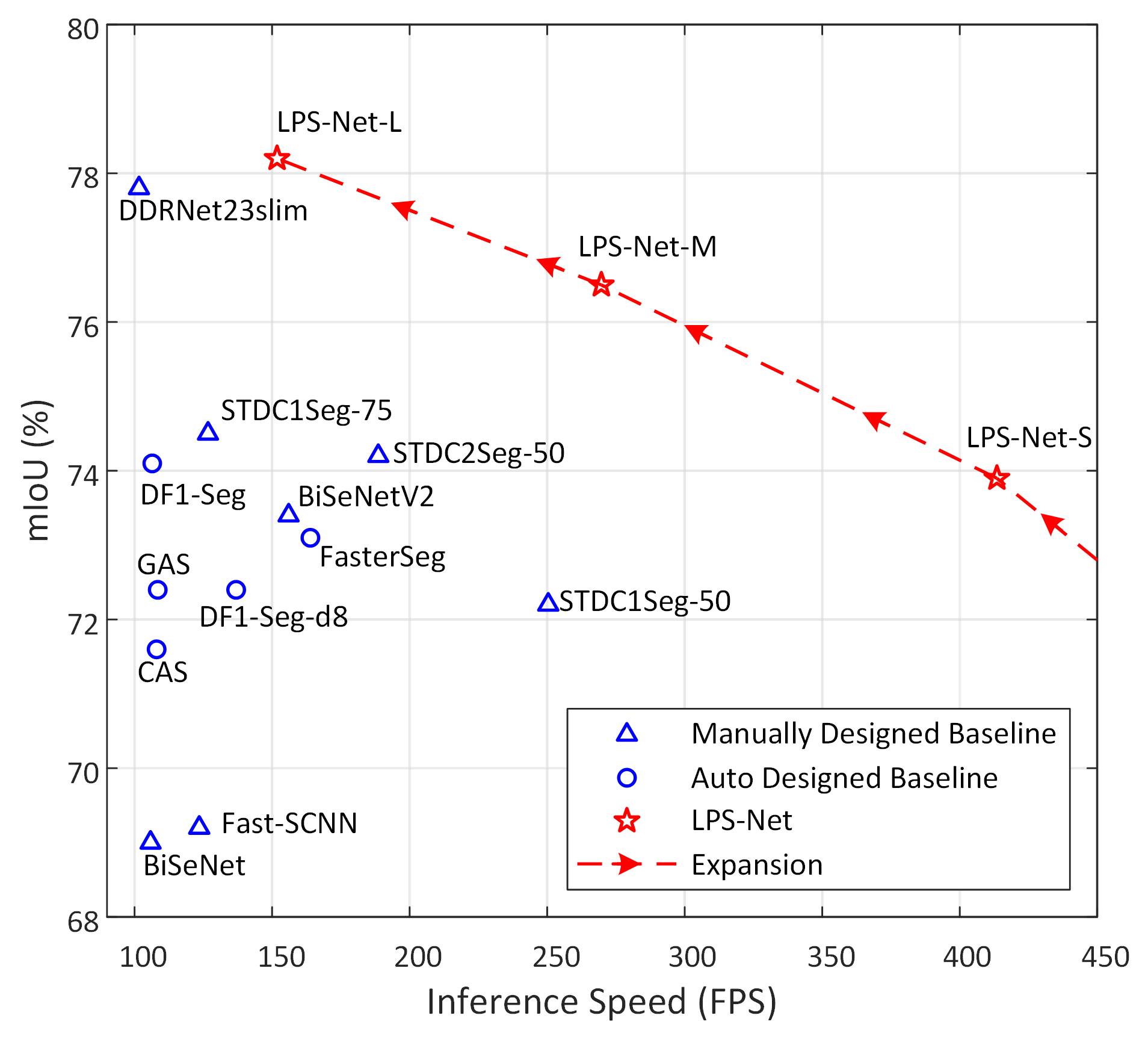Lightweight and Progressively-Scalable Networks for Semantic Segmentation
The original paper can be found here.
Comparisons of inference speed/accuracy tradeoff on Cityscapes validation set. Inference speed of LPS-Net (-S, -M, and -L) are measured on an NVIDIA GTX 1080Ti GPU with TensorRT.| Package | Version |
|---|---|
| torch | 1.9.0+cu111 |
| torchvision | 0.10.0+cu111 |
| numpy | 1.21.1 |
| onnx | 1.10.0 |
| onnx-simplifier | 0.3.6 |
| Pillow | 8.3.1 |
| TensorRT | 7.1.3.4 |
To evaluate the LPS-Net-S on the Cityscapes validation set with "val_miou.py", first setup the Cityscapes dataset and update data path in "imagelist_val.txt"/"val_miou.py" and (if needed), then run:
python val_miou.py
The expected output is:
Total 500 images for validation.
LPS-Net-S on Cityscapes validation set: mean IoU=73.9%
To measure the latency of LPS-Net-S on your device with TensorRT in FP32 mode, run:
python latency.py
Please ensure the TensorRT has been correctly installed and configured.
| File | Content |
|---|---|
| val_miou.py | Evaluate the mean IoU performance of LPS-Net-S on Cityscapes validation set. |
| latency.py | Measure the latency of LPS-Net with TensorRT in FP32 mode. |
| lpsnet.py | Definitions and implementation of LPS-Net. |
| expand.py | Progressive expansion of LPS-Net. |
| LPS-Net-S.pth | Weights of LPS-Net-S. It is trained on the Cityscapes training set. |
| imagelist_val.txt | A list of image-label pairs on the Cityscapes validation set. It is utilized to evaluate mean IoU performace in "val_miou.py". Note that the label images should use official "trainId". |
Cite as below if you find this repository is helpful:
@article{zhang2022lpsnet,
title = {Lightweight and Progressively-Scalable Networks for Semantic Segmentation},
author = {Zhang, Yiheng and Yao, Ting and Qiu, Zhaofan and Mei, Tao},
journal = {ArXiv},
year = {2022},
volume = {abs/2207.13600}
}
